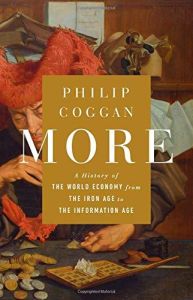
Book
More
A History of the World Economy from the Iron Age to the Information Age
Recommendation
The global economy has made massive strides over the millennia, an evolution driven by innovations both tangible – ships, railroads and computer chips – and intangible, like credit markets and regulatory regimes. British journalist Philip Coggan lays out the contours of these developments in this accessible overview that hews to the middle of the political road. While the broad themes will be well known to many readers, Coggan does pull out some hidden gems, such as the fact that standardized time zones didn’t exist until the late 19th century.
Summary
About the Author
Philip Coggan is the author of The Money Machine and Paper Promises. He writes the Bartleby column for The Economist and formerly wrote the Buttonwood column.
By the same author
Book
Book
Learners who read this summary also read
Book
Book
Book
Book
Book

















Comment on this summary